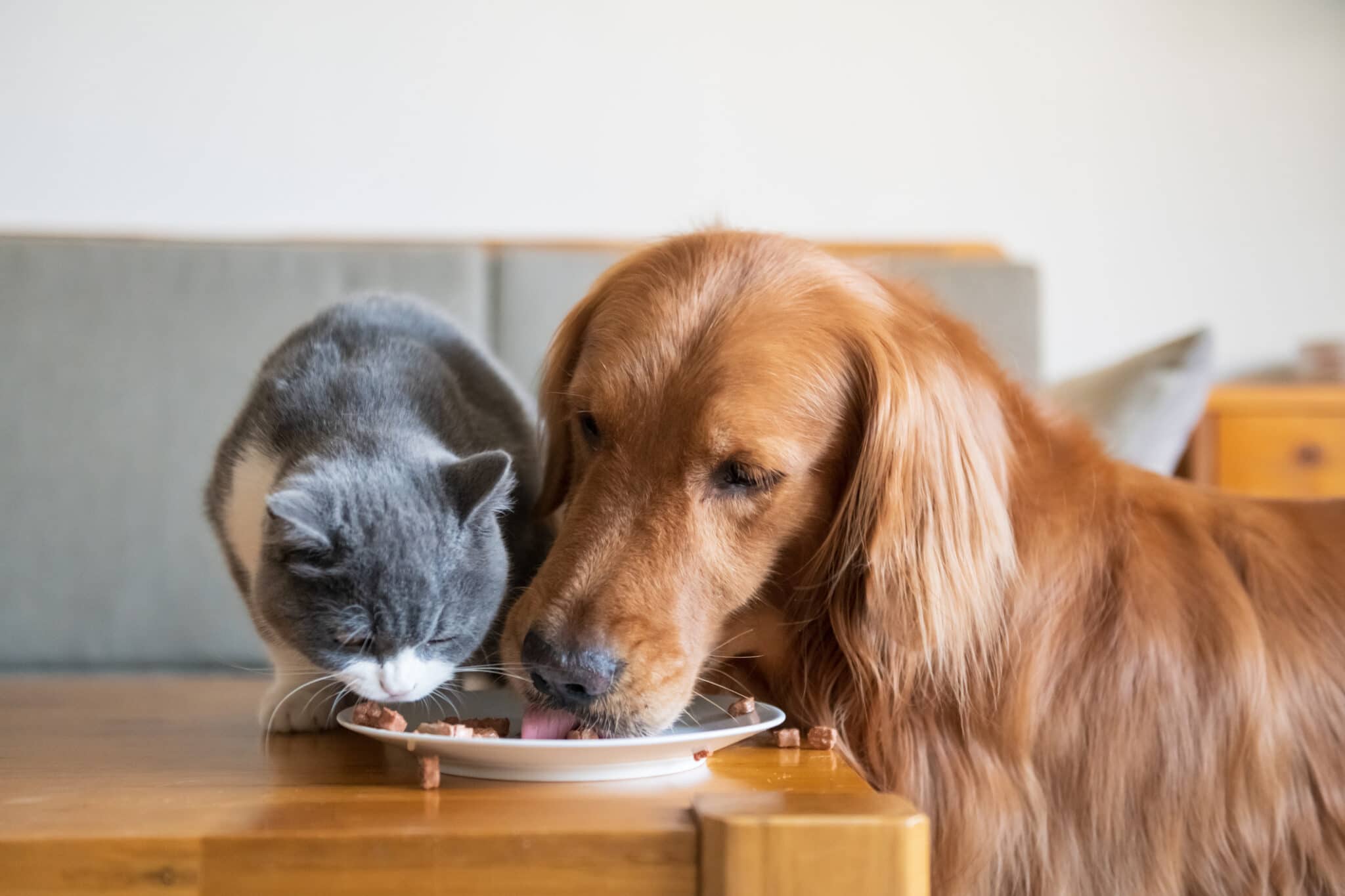- April 21, 2022
- No Comment
- 7 minutes read
Should You Put Your Pets on a Plant-Based Diet? Experts Say No – EcoWatch

With more people adopting plant-based diets, it’s not surprising that they might be considering what goes into their pets’ foods too. However, when considering making any dietary changes, animal caretakers need to make sure the unique nutritional needs of their favorite felines and canines are met. For instance, while dogs are considered omnivores, cats are most definitely carnivores.
According to Dr. Pete Wedderburn, a veterinarian in County Wicklow, Ireland, dogs are omnivores and can go vegetarian or vegan as long as they have a “complete and balanced” diet, which includes protein, fats, carbohydrates, vitamins and minerals, as well as fiber, as The Guardian reported.
“[Y]ou can’t just start to feed them pasta and tomato sauce with broccoli and carrots on the side. … The easiest and safest approach is to buy a commercially manufactured complete vegetarian or vegan dog food that has gone through feeding trials,” Dr. Wedderburn said, as reported by The Guardian.
These foods will meet the legal requirements for specific nutrients your dog needs.
But while vegetarian diets may be possible for dogs, it doesn’t mean they’re recommended.
“It is theoretically possible to feed a dog a vegetarian diet, but it’s much easier to get it wrong than to get it right,” said president of the British Veterinary Association Daniella Dos Santos, as BBC Future reported. “You would have to do it under the supervision of a veterinary-trained nutritionist.”
Cats, on the other hand, are — as with many facets of our favorite feline friends — a different story entirely.
All cats, from tomcats to lions, are what are called obligate carnivores. Most carnivores don’t fit into the obligate category, but those that do need to consume meat in order to survive, as they are unable to properly digest plants, National Geographic reported.
“There are a number of reasons why cats don’t do well on a vegan diet, but it all essentially comes down to this: they aren’t adapted to it,” the American Society for the Prevention of Cruelty to Animals (ASPCA) advised. “Feeding a cat a plant-based diet is a lot like feeding a cow a meat-based diet—their digestive system isn’t geared to handle it.”
Cats aren’t able to get all the nutrients they need from plants and bacteria because they have low levels of the necessary enzyme to split carotenoids like carotene into vitamin A, according to the Journal of Nutrition.
Plants also don’t provide enough of the kind of protein cats need, and a high-carbohydrate diet is not an option for cats.
“Plants simply don’t have high enough levels of high-quality, highly digestible protein to meet a cat’s dietary requirements,” the ASPCA reported. “Cats are not good at digesting carbohydrates. They don’t get much energy from them, and a carbohydrate-rich diet is not appropriate for cats. They need calorie dense options that meat provides.”
Dolphins, eagles and seals are also members of the obligate carnivore family, reported Rawz.
Cats require more protein, as well as the amino acids taurine and arginine, said Dr. Wedderburn, as The Guardian reported. Taurine can be made synthetically from chemicals not derived from meat, and arginine is commonly found in meat but can be found in some plants. So no matter what, if a cat’s diet does not include meat, these amino acids must be supplemented.
The way cats have evolved — with teeth and digestive systems built to get nutrition from birds, rodents and other small prey — means that while they can eat and digest some plant-based foods, and even absorb some of their nutrients, they still need some things that are only customarily found in meat, Dr. Wedderburn said.
An essential fatty acid called arachidonic acid that is typically only found in animal tissue is also required for a healthy feline diet, Dr. Wedderburn went on to say.
“A soil fungus can be used to manufacture a vegan version of arachidonic acid, and this can be used to supplement commercial vegan cat food. They also have meat-linked vitamin needs, including a preformed version of vitamin A that is only found naturally in meat, and also vitamin B12,” Dr. Wedderburn said, as The Guardian reported.
Another thing to consider from a sustainability standpoint is that traditionally pet food has been made from meat that might have ended up going to waste.
“Arguably, pet food production is already sustainable, in that it finds a use for meat products that might otherwise be discarded. The increasing demand for human-type pet food, using better quality ingredients (eg fillet steak instead of cows’ feet) is changing this sustainable model,” said Dr. Wedderburn, as The Guardian reported.
The best of EcoWatch right in your inbox
Sign up for our email newsletter!

